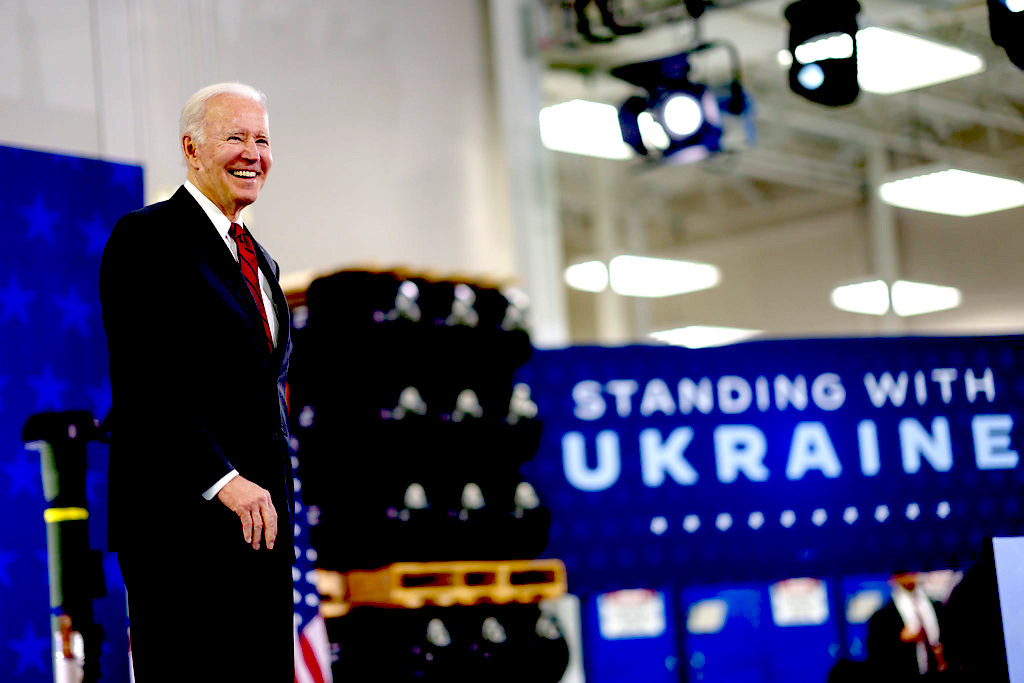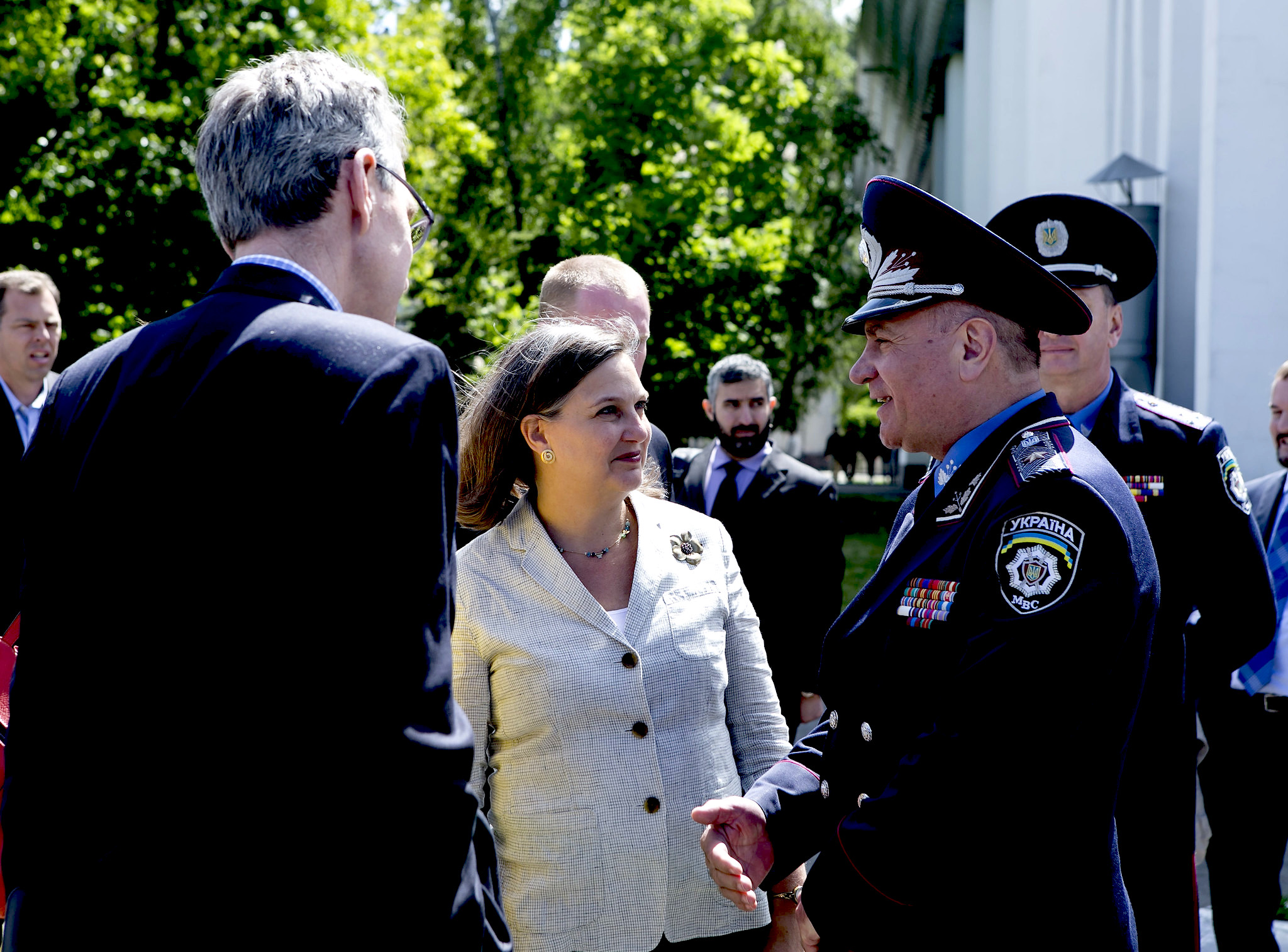Saturday Commentary and Review #88
Americanization of UK Political Culture, Poland Hemmed in on All Sides, ESG as Corporate PR Bullshit, Shoving Nerds Into Lockers, Chad Shkreli and the Journo
As a little kid in early 80s suburbia, I noticed that the teenagers around me were neatly divided between those that listened to American music (generally Hard Rock and Heavy Metal), and those who preferred the New Wave that was being imported from the UK. My older cousins were very much in the latter group, and their tastes influenced my own sensibilities. This was an era where choice in music defined youth culture, from slang to fashion, and so on. Music was the spoke that turned the wheel.
Growing up in that decade in Canada, we were lucky (IMO) to be exposed to British popular culture, as it gave us something to compare to the American one, a popular culture that would swallow Canada whole by the 1990s thanks to the proliferation of cable television. Anglophone Canada fell with barely a fight being put up (CANCON being a notable exception). This is best exemplified in normal patterns of speech. Canadians will answer to questions from the Police by saying “yes, Officer” instead of “yes, Constable”. In court, one will hear “Your Honour” instead of the correct “Your Worship”. These are just minor examples.
I did not expect British culture to become Americanized. I found their comedies funnier, their music better and more interesting, and that they would protect their way of life thanks to the rich history that they have, especially when compared to their cousins across the pond. After all, Britpop music of the mid-90s was incredibly upfront about its Britishness, never rejecting the opportunity to wave the Union Jack when possible.
The third decade of the new century sees a different Britain. American soft power has permeated the UK so much so that its political culture is now increasingly Americanized. The yapping poodle of Atlanticism is transmogrifying to the horror of Brits like Christopher Hatton:
The second is more dispiriting. There is now a significant element of the British elites — not limited to, but certainly including, our politicians — which behaves as the Americanised ruling class of a supine client kingdom. This has been obvious recently in the political realm. As I recently observed, atlanticist Conservatives now argue for a presidential system of government and for a purported separation of Church and State, betraying their party’s historic Toryism. Far too many British politicians have their socio-political imaginary shaped by The West Wing and by self-deluding fantasies of Reaganite liberal atlanticism, abandoning any worldview drawn from British history or the prospect of an organic future recognisably of our own.
I am wont to describe the political leadership of European countries as less Prime Ministers/Presidents than Regional Franchise Managers. I believe that there is merit to this insult.
The role of the UK media:
Our lobotomised journalistic class bears great responsibility for this. Obsessed with the U.S. culture wars, and possessed of an arrogant monolingualism usually associated with boozy Brits on holiday slowly and loudly demanding directions to the beach, the BBC and major newspapers devote their energies to the minutiae of Democratic primaries or breathless and credulous commentary on whichever social shibboleth is currently being inappropriately adjudicated by their Supreme Court.
There is precious little serious reporting on France or Germany, and virtually no sustained coverage of anywhere else. The British journalistic classes convey caricatured portrayals of Europe’s Macrons or Merkels, and endless analyses of bathroom policies in Iowa (or wherever).
One cannot be blamed for watching the slow-train wreck that is US politics today. However valid his point is, trends in US politics will inform those in its far-flung satrapies, like the UK or my own country. The metropole informs the provinces, which is why absurdities like #BLMCanada or #BLM in the UK exist, divorced from the history of these two countries, wholly borrowed from the USA.
A healthy dose of reality:
That the British Empire was dismantled under American moral and economic pressure is not necessarily a bad thing, certainly not for many of Britain’s former subject peoples. Yet it is unhealthy to deceive ourselves that the end result has not been the reduction of Britain to one of the new imperial hegemon’s European client kingdoms.
Britain has never had her necessary Gaullist moment, a taking stock of who we are, where we have come from, and where we want to go in the world. As a result, we are not the high-minded Greeks of Macmillan’s anaesthetic imagination, but more like the cringing provincial elites who petitioned to erect civic temples dedicated to Rome and Augustus.
Speaking of Gaullism, readers of this Substack are well-aware that the French are trying to push back on the Americanization of their own Academia (and therefore politics as well).
There is something decadently late-Hellenistic about the remaining trappings of state in this American client kingdom. Events like State Openings of Parliament and the recent Jubilee, if divorced from a vital and viable British identity, become a fig-leaf of national continuity, covering up our debilitating cultural, political and economic weakness. They serve to hide the ruling class’s atrophying sense of confidence or purpose, as the elite’s old groundings in a wider European culture and a practised Christianity wither away.
A defeatist might be forgiven for looking at the pretentions of Crown and Parliament through the eyes of Constantine Cavafy’s poem “Alexandrian Kings”. The great Greek poet imagines the baroque spectacle of the joint coronations of Cleopatra’s young sons — Caesarion, Alexander and Ptolemy — in the autumn of Hellenistic Egypt, right before its absorption by Rome. The ceremonies are opulent and cosmopolitan, the princelings’ accolades magnificent. Yet the Alexandrian crowds “knew full well what all this was worth, what hollow words were those kingly titles”.
We are not, perhaps, quite there yet. But escaping the sorry fate of the client kingdom requires a refreshed cultural confidence, and jettisoning a ruling class too slavishly devoted to the Caesars across the sea.
Hear, Hear!
We’ll continue with the theme of the USA and its satrapies by turning to Poland. Warsaw is without a doubt the most pro-American large state on the European continent. It has tied itself firmly to DC’s mast, and with good reason: to offset a German-dominated EU and to place itself under the protection of the American umbrella (NATO) vs. Russia.
The Poles sent their forces into Iraq almost 20 years ago to get onto the Americans’ good side, leading Donald Rumsfeld to praise them as the leaders of “New Europe”, contrasting them with “Old Europe”, led by Germany and France, two countries that sat that conflict out. This assistance paid dividends as Poland became a bulwark of NATO defence on its eastern flank. All was well in US-Polish relations while Civic Platform ran the show, with Mr. Anne Applebaum aka Radek Sikorski as main US asset.
Relations took a bad turn when the conservative PiS took power, ejecting the centre-right milquetoast Civic Platform, and proceeded to remove old commie judges from the courts, while rejecting the Merkel-led idea of each EU country hosting and absorbing increasing migrant waves from Africa and Asia, and saying no to social liberalization like gay marriage. PiS’ refusal to Americanize Poland led to attacks from both the EU and the US State Department, with Joe Biden going the furthest, attacking the country as “totalitarian”during his 2020 campaign. Even Trump-appointed Ambassador to Poland Georgette Mosbacher joined in on the fun when she explained that gay rights must trump Catholic culture, saying that“Poland is on the wrong side of history”.
The Polish right, led by PiS, has always had in its hands the trump card of the Russian threat. It has been understood that thanks to Putin and the perceived threat to Europe that he represents, the Poles have much more leeway in running their own country as they see fit, as opposed to much smaller and less strategically significant Hungary. The Russian invasion of Ukraine has forced the Poles to play this card. How is it going? Not very well, according to former Polish Army Chief of Staff Mieczysław Gocuł and long-time Russian watcher John Helmer:
Economically, the war is costing much more in public outlays for the refugees than the value of US and NATO arms flows and related war income. By the time Warsaw pays for its new US weapons, it will owe more than when the war started; and there is still no relief from the European Union funding freeze and penalties.
What’s to be done, the Poles ask themselves – and who’s to blame when they realise the answer is something between not much and nothing.
The principal American in Poland Ambassador Marek (Mark) Brzezinski, has recently called for regime change in Warsaw. He said it this way: “I look at the way we cooperate with the Polish government in a completely different way. We have been consistent in our commitment to security, democracy, values, the economy and people-to-people contacts. One is not subordinate to the other. And we can do several things at the same time. There is no doubt that we unequivocally support Poland in terms of security. There is also no doubt that our approach to the issue of Polish democracy is the same…The priority issues that we see in Poland are equal for us in terms of value. We have worked together as friends in each of these areas: security, democracy, the rule of law, the economy, people-to-people contacts. We are grateful to President Andrzej Duda for some of the actions taken. As President Biden said in Poland, each of us has a job to do. In the Biden administration, we are also working on our democracy and the rule of law. ”
What the Polish audience understands Brzezinski is saying is that “democracy and the rule of law” mean the replacement of the PiS and its leader, Jarosław Kaczynski. By Polish “democracy” Brzezinski doesn’t mean Lewica, the coalition of Poland’s left parties, which are currently drawing 10% in the polls. The US, according to Brzezinski, is as ungrateful to President Duda for most of what he and the PiS are doing as the US is grateful for “some”. As for the Polish economy, it is going to pay $14.1 billion for its new F-35 fighter aircraft, Abrams tanks and Patriot missiles without discounts or domestic production offsets. By “people-to-people” contacts, what the US ambassador means is his special relationship with the sworn rival of the PiS in next year’s campaign, Rafał Trzaskowski; he is the Warsaw city major since 2018 and PO presidential candidate in 2020, when Duda narrowly defeated him.
“Thanks for holding the line, Poland. BTW, we’re gonna change your government too.”
Now watch this:
Balcerac: “Poland is being played on from several sides. On the one hand, the Russian invasion of Ukraine causes an increase in the prices of energy raw materials, and the acceleration of inflation is being exploited by the opposition. On the other hand, the European Union bureaucracy manipulated by Berlin is blocking the disbursement of EU funds to Poland; that too is being exploited by the opposition.”
“In addition, our biggest ally, the United States, is playing a double game, dreaming up plans for regime change in Warsaw. This is evident from the activity of US Ambassador Marek Brzezinski, who spends more time praising the opposition than talking to government representatives. Example: a few days before the provocation by [Civic Platform] MP Klaudia Jachira in the Sejm, Ambassador Brzezinski posed for photos with Jachira in his residence, with his arm around her.”
Helmer’s piece (very, very long) then turns to an English translation of an interview with the General mentioned above:
“I am very concerned that the NATO summit in Madrid is going in the wrong direction. Instead of looking for ways to win peace — because this is the essence of the problem of the eastern flank — the summit is to convince us that we will win the future war if, or rather when, it happens… First of all: NATO at the 2014 summit in Newport, by creating the Readiness Action Plan, increased the Response Force to 40,000 troops, including land, sea, air, space and cyber components. Now, in 2021-22 — because the Russians mobilized their forces for this war in October last year — we have a war. And what happened on NATO’s eastern flank? US troops arrived, but importantly, the NATO Response Force did not arrive. And yet, if Russia’s invasion of Ukraine close to our borders did not cause a reaction by the NATO Response Force, then it is necessary to ask the head of NATO whether the Alliance’s crisis response procedures have been launched at all.”
“If the Pact triggered them, after the initiating phase (conflict detection), it would be necessary to move on to the next phase — strategic assessment by the commander of the combined NATO forces in Europe. Such an assessment should be presented by the commander at a meeting of the North Atlantic Council [NAC – NATO’s most important decision-making body]. After all, this assessment ought to be a simple one. Russia deployed over 150,000 troops and launched an invasion of Ukraine. It was therefore to be expected that the NAC would share the [NATO] commander’s assessment. The next step in NATO’s crisis response should have been to use Response Options Development. But nothing like that happened. We in Poland and the Baltic states understand the threat, but the approach of other NATO states is diametrically different.”
The ex-General is sounding the alarm, saying that NATO is not fulfilling its obligations towards Poland.
Now the tension between Russia and Lithuania is growing, because the sanctions are blocking the Kaliningrad Oblast more and more. Could this be a hotspot?
If Putin wanted to start the war further and decided to cut a corridor through the Baltics to the Kaliningrad District at the Suwałki Gap, what forces could stop him? Could the forces of Lithuania, Latvia, Estonia and Poland stop Putin? Not at all. Putin will not be stopped by the Americans, who are present on the eastern flank only in small numbers. I repeat, Russia talks and calculates only with strong countries and organizations. And NATO in our region is weak.
and
The Estonian prime minister says: ‘Estonia [in the event of an attack by Russia] would be wiped off the map of Europe and its capital razed to the ground’, so NATO’s strategy follows the principle of ‘lose and then liberate’. And this is what it would be like in the event of the Russian invasion of the Baltic states?
This, unfortunately, is true. But let’s start with the basic thing: what is the definition of security? It is the freedom to choose the path of development of the country. After all, what we have today on the eastern flank – in Poland, Lithuania, Latvia, Estonia – is a contradiction of security. There is no free development; there are a lot of restrictions; there is a huge pressure to increase defense spending. And if there is no security, it means that NATO is not meeting the goals set out in the Washington Treaty, so NATO is not a strategic concept today…
The value in the ex-General’s words stem from the fact that he falls firmly within the Atlanticist orbit.
https://niccolo.substack.com/p/saturday-commentary-and-review-88?utm_source=email




 T
T







